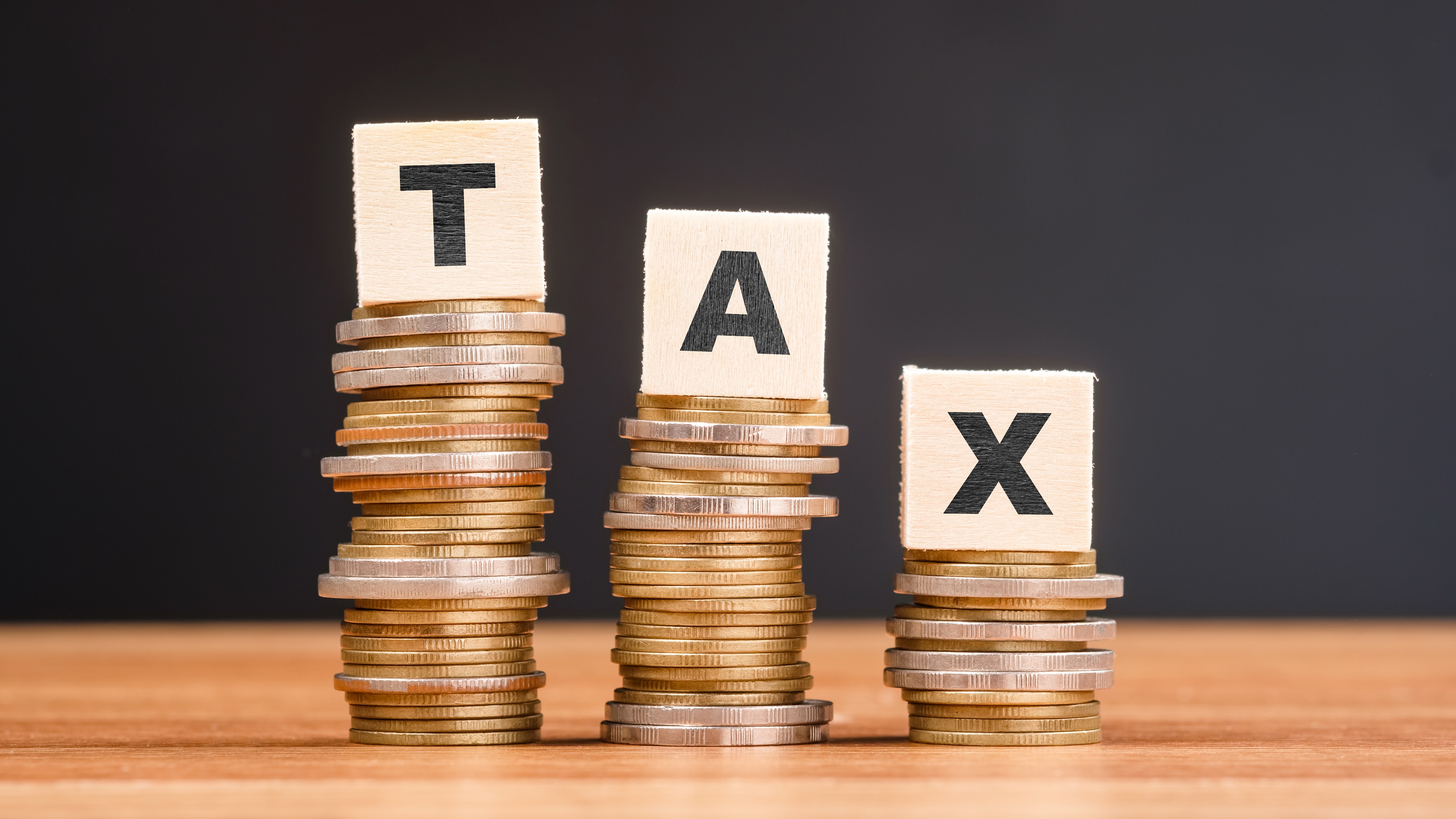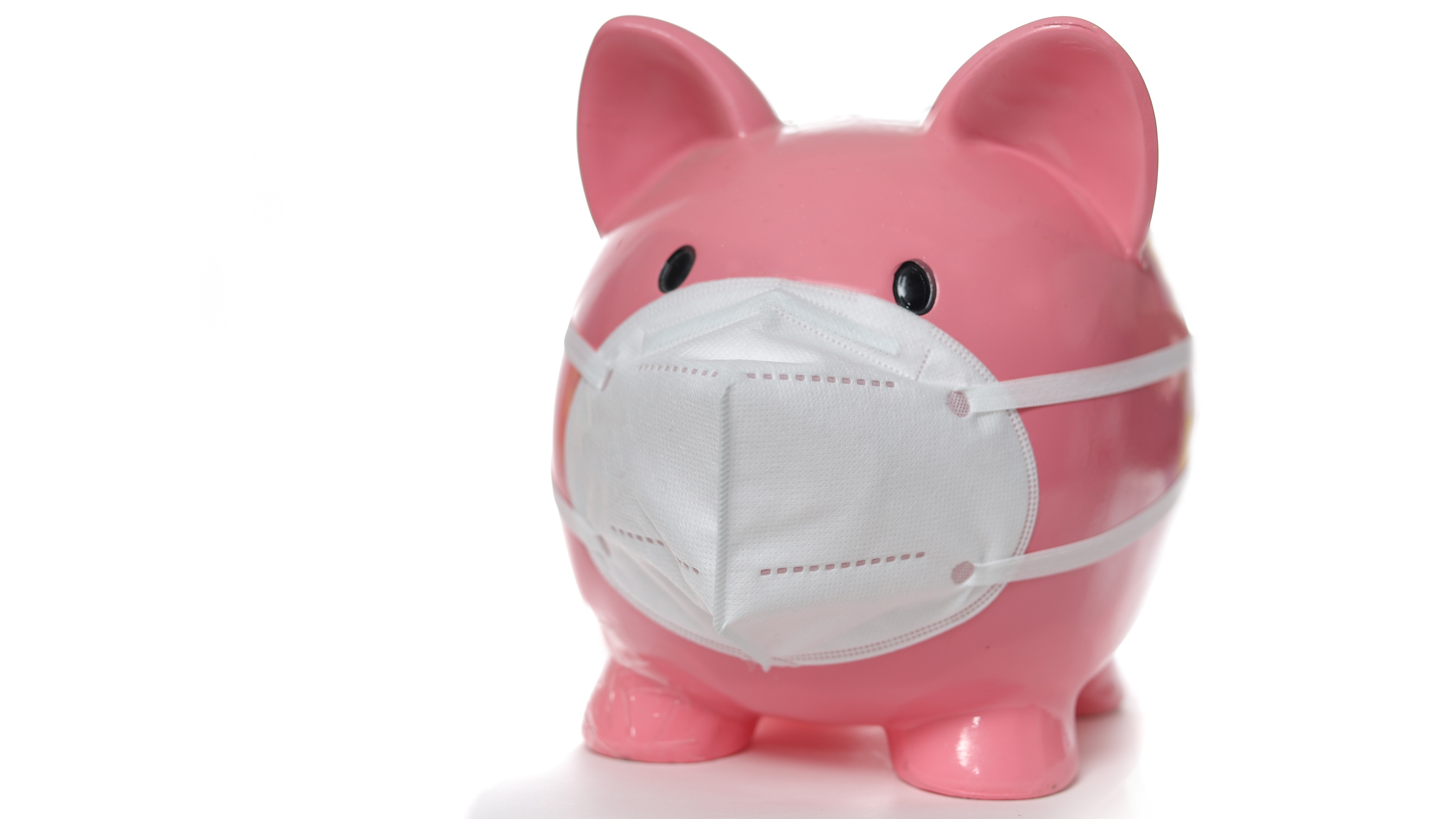3 Ways to Pay Less Taxes in 2023
Using brokerage accounts as collateral, investing in a Roth IRA and opening an HSA account are all ways to ease your tax burden and boost savings in the new year.

Profit and prosper with the best of Kiplinger's advice on investing, taxes, retirement, personal finance and much more. Delivered daily. Enter your email in the box and click Sign Me Up.
You are now subscribed
Your newsletter sign-up was successful
Want to add more newsletters?

Delivered daily
Kiplinger Today
Profit and prosper with the best of Kiplinger's advice on investing, taxes, retirement, personal finance and much more delivered daily. Smart money moves start here.

Sent five days a week
Kiplinger A Step Ahead
Get practical help to make better financial decisions in your everyday life, from spending to savings on top deals.

Delivered daily
Kiplinger Closing Bell
Get today's biggest financial and investing headlines delivered to your inbox every day the U.S. stock market is open.

Sent twice a week
Kiplinger Adviser Intel
Financial pros across the country share best practices and fresh tactics to preserve and grow your wealth.

Delivered weekly
Kiplinger Tax Tips
Trim your federal and state tax bills with practical tax-planning and tax-cutting strategies.

Sent twice a week
Kiplinger Retirement Tips
Your twice-a-week guide to planning and enjoying a financially secure and richly rewarding retirement

Sent bimonthly.
Kiplinger Adviser Angle
Insights for advisers, wealth managers and other financial professionals.

Sent twice a week
Kiplinger Investing Weekly
Your twice-a-week roundup of promising stocks, funds, companies and industries you should consider, ones you should avoid, and why.

Sent weekly for six weeks
Kiplinger Invest for Retirement
Your step-by-step six-part series on how to invest for retirement, from devising a successful strategy to exactly which investments to choose.
By reducing your tax burden, you can lower the amount of money you send to the IRS this year… and redirect those dollars to your own savings or spending goals. These three strategies are worth considering if you want to pay less taxes (legally!) in 2023.

1. Create Liquidity From Your Investments.
Individual investment accounts, or brokerage accounts, are great vehicles to use on your journey to building wealth. Unlike qualified retirement accounts, like 401(k)s or IRAs, brokerage accounts don’t come with stipulations or rules about how or when you can access your assets. In theory, that money is yours anytime for any reason (although, in practice, you probably don’t want to dip in and out of the account and therefore unnecessarily interrupt the compounding process of that money in the market).
The cost of that freedom and flexibility? Taxes. Brokerage accounts receive no special tax treatments like qualified retirement accounts. You contribute after-tax money, and if and when you need to liquidate assets from the account, any gains will be subject to short- or long-term capital gains taxes.
Unless you consider this strategy: Instead of liquidating assets in your brokerage account, which can trigger a taxable event, use your assets as collateral to get a line of credit.
Depending on the bank or custodian you use, you can use cash in a bank account or assets in a brokerage account as collateral against a line of credit. If you needed cash quickly, you could then use the line of credit rather than selling out of positions within your investment portfolio to generate that cash and potentially rack up a bigger tax bill. This also provides you with the benefit of allowing your invested assets to stay invested while you use the cash from the line of credit for other purposes.
Of course, this isn’t just free money. The line of credit will come with an interest rate, which can be variable or fixed, and you need to repay whatever you borrow against it plus that interest. This is why, when we discuss this strategy with our financial planning clients, we frame it as a “just in case” option or a safety net.
The line of credit is there if you need it… but that doesn’t necessarily mean it’s a good idea to rely on it or to plan to use it heavily. If you’re trying to pay for a known purchase or goal, it’s better to plan ahead and use other means (like saving up for it in cash over a period of time) to finance the purchase rather than increasing your costs via interest payments.
The ability to do this will depend on your financial institution, your account balances and your credit history. Not all custodians will offer this to retail investors, either; you may need to go through an institutional custodian (which might mean working with a financial adviser to do so).

2. Get Around Income Limits — or Avoid Income Taxes Entirely.
A Roth IRA is a great investment tool to use to help reduce your tax burden in the future. The money you contribute to the account can grow tax-free, and you may not have to pay taxes on your earnings. (This assumes you stick to the rules: You make your withdrawals after age 59½, and the Roth has been open for at least five years.)
Sounds great, right? Here’s the catch: You might make too much money to contribute to the Roth. At least, you might make too much to contribute directly.
This is where backdoor Roth conversions come in. This strategy lets you contribute money to an IRA and then roll that retirement money from the IRA’s pre-tax bucket to the Roth’s after-tax bucket. This can dramatically reduce your tax burden in retirement when it’s time to use the money that you’ve saved.
While getting around the income limits for contributing to a Roth IRA is possible, you still have an income that you have to report … unless you live in a state with no income taxes.
While uprooting to a no-income-tax state might be a stretch for some people, the fact that you can skip out on state income taxes is a real consideration if you’re already contemplating a move. It’s not a reason to move on its own, but it could tip the scales in favor of one state over another.
And here’s a bonus tax-saving tip: If you plan to buy a home, make sure you live in your new residence for two of the last five years to benefit from the capital gain tax exemption.

3. Grow Tax-Free Wealth With an HSA.
There’s no such thing as a free lunch… with possibly one exception when it comes to tax-free money. Health savings accounts, or HSAs, are the only kind of investment account that provide a triple-tax advantage:
- Your contributions to the account could be tax-deductible and are tax-free.
- Any growth within the account is tax-free.
- Withdrawals on qualified medical expenses are tax-free.
While some people use their HSA on an ongoing basis, that likely only allows you to take advantage of the first and third tax advantages. If you contribute cash and then use that cash for qualified medical expenses, you don’t give your money a chance to grow.
If you want to leverage an HSA to its fullest potential, you need to make sure your contributions are invested — and, ideally, they stay invested for as long as possible. What we often recommend to clients with HSAs is to:
- Make the maximum contribution to the HSA each year.
- Invest the contributions and leave them invested.
- Pay for medical costs out of pocket during your working and earning years
- Enjoy what amounts to a “medical IRA” in retirement, when your health care costs are likely going to be much higher than they are today (and remember that you can use HSA money to pay for Medicare Parts B, C and D premiums as well as LTC insurance and normal qualified medical expenses).
Like everything else, this strategy doesn’t work for everyone. It’s worth considering if you are young, healthy and do not usually incur lots of medical costs. But if you use medical services frequently or have a lot of high-cost prescriptions, for example, this might not be the best option.
For one, it could be financially better to actually use your HSA to help manage those costs year-to-year. Two, it might also mean you shouldn’t have an HSA to begin with, because you can only use an HSA if you have a high-deductible health plan (or HDHP). That might not make sense if you’re going to the doctor frequently or often incur lots of medical bills each year.
As with most things in financial planning, the ultimate answer on “does this strategy work for me?” will always be “it depends.” But it’s worth exploring your options to see how you can maximize your wealth — while minimizing how much of it has to go to the IRS.
--
This article was written by and presents the views of our contributing adviser, not the Kiplinger editorial staff. You can check adviser records with the SEC or with FINRA.
Profit and prosper with the best of Kiplinger's advice on investing, taxes, retirement, personal finance and much more. Delivered daily. Enter your email in the box and click Sign Me Up.

Eric Roberge, CFP®, is the founder of Beyond Your Hammock, a financial planning firm working in Boston, Massachusetts and virtually across the country. BYH specializes in helping professionals in their 30s and 40s use their money as a tool to enjoy life today while planning responsibly for tomorrow.
Eric has been named one of Investopedia's Top 100 most influential financial advisers since 2017 and is a member of Investment News' 40 Under 40 class of 2016 and Think Advisor's Luminaries class of 2021.
-
 How Much It Costs to Host a Super Bowl Party in 2026
How Much It Costs to Host a Super Bowl Party in 2026Hosting a Super Bowl party in 2026 could cost you. Here's a breakdown of food, drink and entertainment costs — plus ways to save.
-
 3 Reasons to Use a 5-Year CD As You Approach Retirement
3 Reasons to Use a 5-Year CD As You Approach RetirementA five-year CD can help you reach other milestones as you approach retirement.
-
 Your Adult Kids Are Doing Fine. Is It Time To Spend Some of Their Inheritance?
Your Adult Kids Are Doing Fine. Is It Time To Spend Some of Their Inheritance?If your kids are successful, do they need an inheritance? Ask yourself these four questions before passing down another dollar.
-
 The 4 Estate Planning Documents Every High-Net-Worth Family Needs (Not Just a Will)
The 4 Estate Planning Documents Every High-Net-Worth Family Needs (Not Just a Will)The key to successful estate planning for HNW families isn't just drafting these four documents, but ensuring they're current and immediately accessible.
-
 Love and Legacy: What Couples Rarely Talk About (But Should)
Love and Legacy: What Couples Rarely Talk About (But Should)Couples who talk openly about finances, including estate planning, are more likely to head into retirement joyfully. How can you get the conversation going?
-
 How to Get the Fair Value for Your Shares When You Are in the Minority Vote on a Sale of Substantially All Corporate Assets
How to Get the Fair Value for Your Shares When You Are in the Minority Vote on a Sale of Substantially All Corporate AssetsWhen a sale of substantially all corporate assets is approved by majority vote, shareholders on the losing side of the vote should understand their rights.
-
 How to Add a Pet Trust to Your Estate Plan: Don't Leave Your Best Friend to Chance
How to Add a Pet Trust to Your Estate Plan: Don't Leave Your Best Friend to ChanceAdding a pet trust to your estate plan can ensure your pets are properly looked after when you're no longer able to care for them. This is how to go about it.
-
 Want to Avoid Leaving Chaos in Your Wake? Don't Leave Behind an Outdated Estate Plan
Want to Avoid Leaving Chaos in Your Wake? Don't Leave Behind an Outdated Estate PlanAn outdated or incomplete estate plan could cause confusion for those handling your affairs at a difficult time. This guide highlights what to update and when.
-
 I'm a Financial Adviser: This Is Why I Became an Advocate for Fee-Only Financial Advice
I'm a Financial Adviser: This Is Why I Became an Advocate for Fee-Only Financial AdviceCan financial advisers who earn commissions on product sales give clients the best advice? For one professional, changing track was the clear choice.
-
 I Met With 100-Plus Advisers to Develop This Road Map for Adopting AI
I Met With 100-Plus Advisers to Develop This Road Map for Adopting AIFor financial advisers eager to embrace AI but unsure where to start, this road map will help you integrate the right tools and safeguards into your work.
-
 The Referral Revolution: How to Grow Your Business With Trust
The Referral Revolution: How to Grow Your Business With TrustYou can attract ideal clients by focusing on value and leveraging your current relationships to create a referral-based practice.

